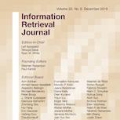Due to the massive size of test collections, a standard practice in IR evaluation is to construct a 'pool' of candidate relevant documents comprised of the top-k documents retrieved by a wide range of different retrieval systems - a process called depth-k pooling. A standard practice is to set the depth (k) to a constant value for each query constituting the benchmark set. However, in this paper we argue that the annotation effort can be substantially reduced if the depth of the pool is made a variable quantity for each query, the rationale being that the number of documents relevant to the information need can widely vary across queries. Our hypothesis is that a lower depth for the former class of queries and a higher depth for the latter can potentially reduce the annotation effort without a significant change in retrieval effectiveness evaluation. We make use of standard query performance prediction (QPP) techniques to estimate the number of potentially relevant documents for each query, which is then used to determine the depth of the pool. Our experiments conducted on standard test collections demonstrate that this proposed method of employing query-specific variable depths is able to adequately reflect the relative effectiveness of IR systems with a substantially smaller annotation effort.
翻译:暂无翻译


